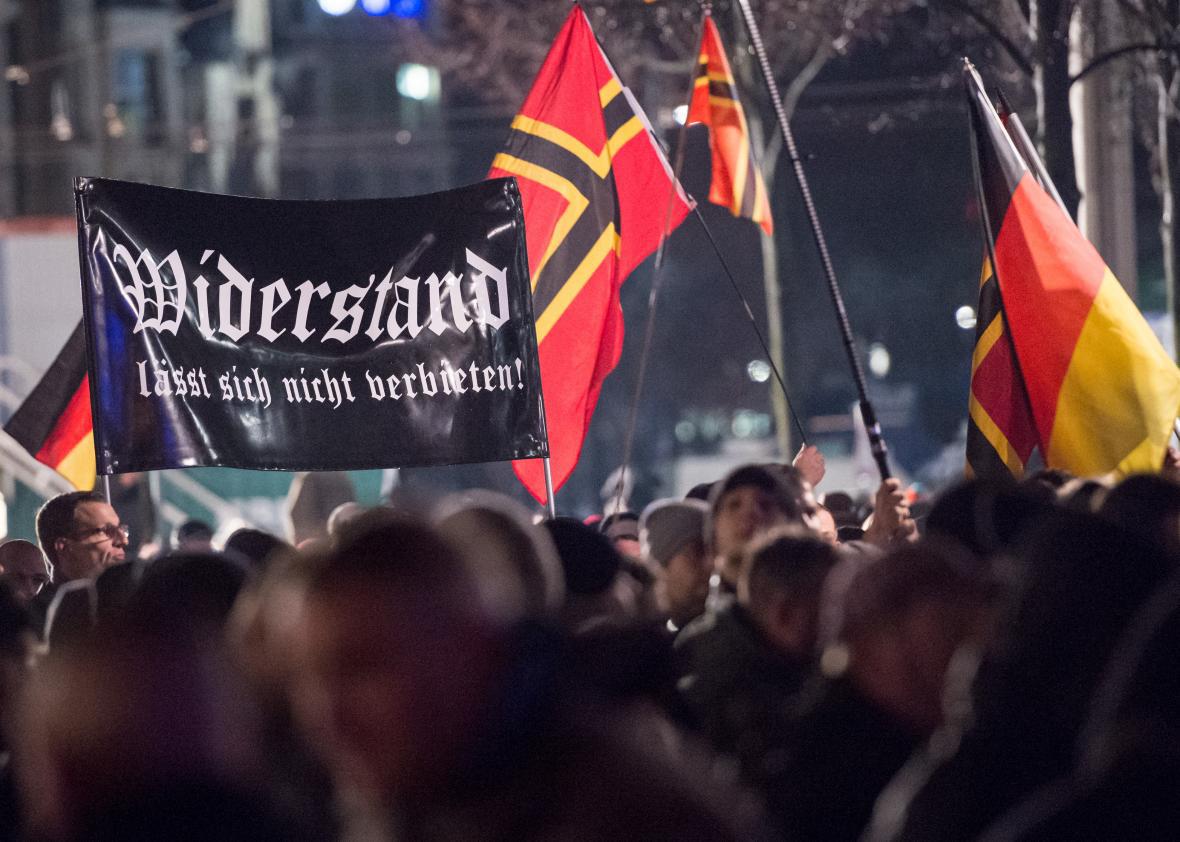The German parliament passed a new rape law on Thursday, broadening the country’s definition of sexual assault to include any sexual act that a victim declines through verbal or physical cues. Previous law made no mention of consent and required that a victim physically fight back against her rapist to prove that he overcame her with force.
Activists have been protesting this antiquated definition of rape for years, at least since the Council of Europe’s 2011 convention classified any non-consensual sexual act as sexual violence. But it took two recent events—and the buy-in of right-wing politicians bent on closing Germany’s borders—to force change in parliament. One was the acquittal of two men whom German model Gina-Lisa Lohfink accused of drugging and raping her, which raised a level of public ire that’s been compared to the aftermath of the recent Brock Turner trial in America. The defendants filmed themselves having sex with Lohfink and posted the video online; in it, she reportedly says “stop it” and “no” as they force themselves on her. Since a judge dismissed the rape charges, he also fined Lohfink the Euro equivalent of about $27,000 for falsely accusing her alleged rapists.
The #NeinHeisstNein (no means no) hashtag campaign that accompanied Lohfink’s case gained steam with the horrifying New Year’s Eve attacks in Cologne, where groups of men roamed a crowd of revelers, sexually assaulting hundreds of women. As prosecutors identified suspects and investigated victims’ claims, they were forced to concede that many of the nonconsensual groping, fondling, and other sexual acts committed that night were not actually illegal.
This was a revelation for some German residents who were unaware that the country’s law didn’t recognize any sexual assault not committed by force or a “threat of imminent danger to life and limb,” as proven by physical evidence—bruises, cuts, broken bones—presented by the victim. In other words, men in Germany had the right to touch women’s genitals in public spaces, as they did in Cologne, as long as they’re quick enough to get away before she has time to resist.
Under the new law, rape includes any sexual act that violates the “discernable will” of the victim, groping is classified as a sex crime, and prosecutors will find it easier to convict perpetrators of surprise assaults. It also identifies the kinds of psychological and emotional intimidation that are characteristic of abusive relationships as “force.” This is a major step forward for German rape law, long condemned by women’s-rights advocates as a relic of a bygone era. Marital rape, for instance, was legal in the nation until 1997. (U.S. states began criminalizing marital rape in the mid-‘70s; the last state, North Carolina, made it illegal in 1993.)
The new legislation is far from perfect: Activists have pointed out loopholes that could make it hard to prove lack of consent if a victim is unconscious or drugged. And in a strange coming together of feminists and anti-immigrant conservatives, the law will also make it easier for Germany to deport foreign nationals who commit sexual assaults or other severe crimes.
This move has been in the works for months as Germans have criticized Chancellor Angela Merkel’s liberal refugee policy. Once Cologne law enforcement officials revealed that many of the New Year’s Eve assaults were committed by non-white immigrant men, right-wing activists and groups of small-town German men who’d once dismissed women’s claims of a crisis of sexual violence suddenly became anti-rape champions ready to jump into action and finally believe women—as long as they were attacked by non-Germans from the Middle East or North Africa. The tactic bears a striking similarity to the way Donald Trump and other Republican politicians styled themselves as LGBTQ allies after last month’s Orlando nightclub shooting, all in the service of stoking Islamophobia and stoking anti-immigrant sentiment among a grieving population. In the U.S. as in Germany, tragedy makes a convenient platform for fearmongers.
